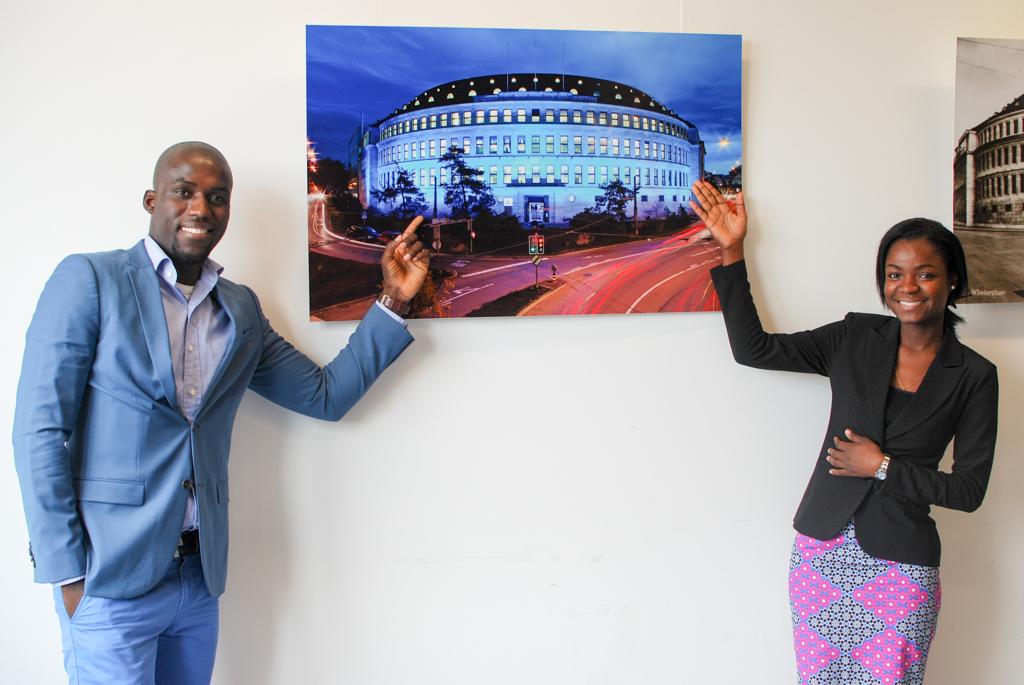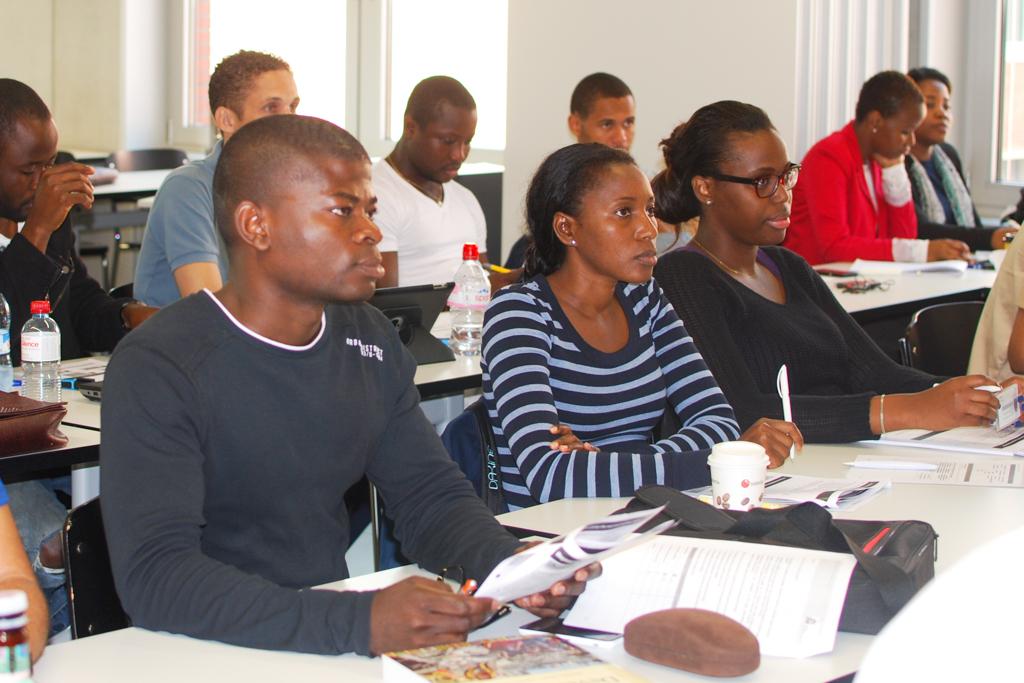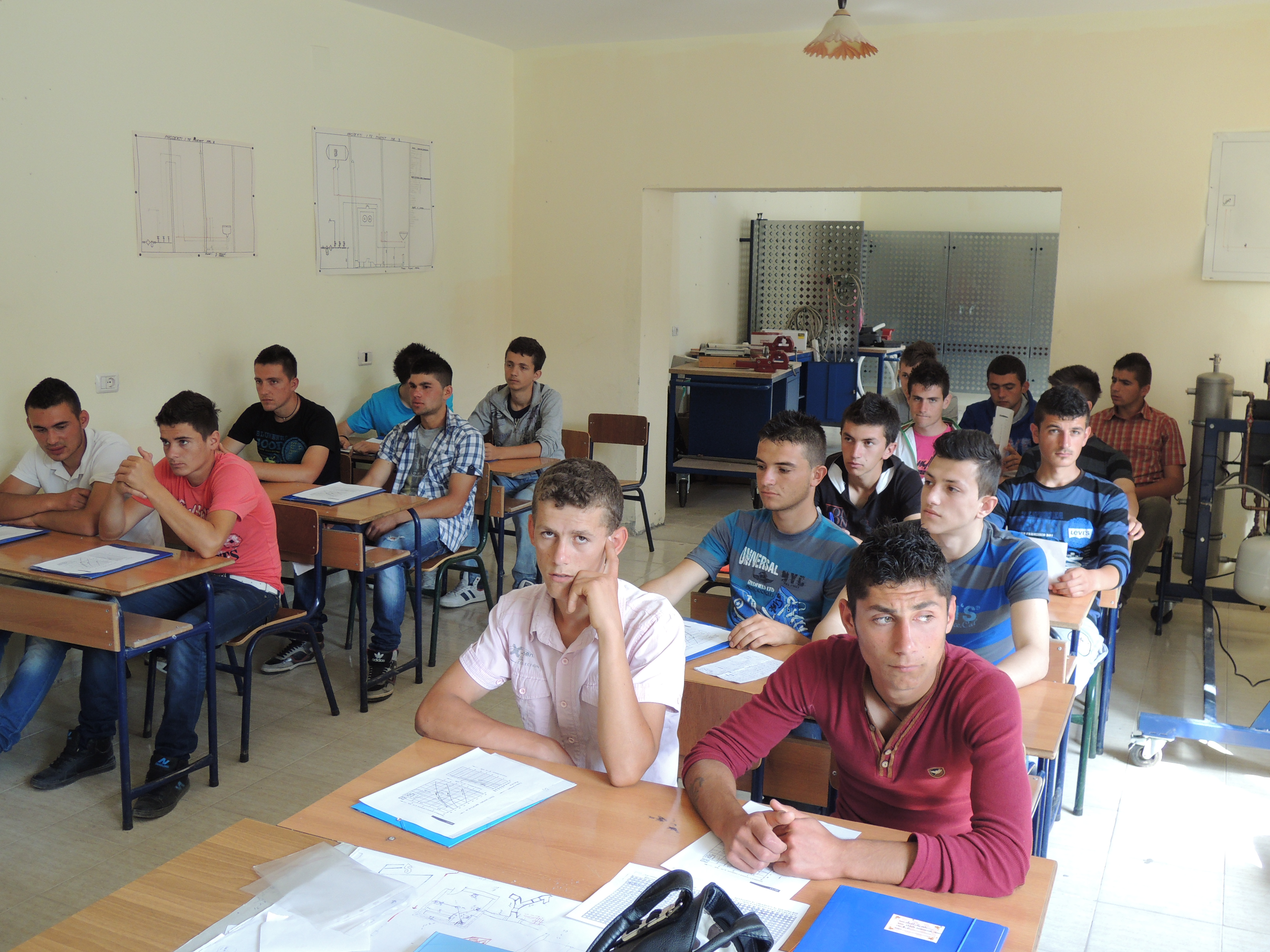Great expectations for scholarship Angolans

Among the intake of students at the Zurich University of Applied Sciences (ZHAW) this semester is a unique group from Angola. These young adults fought tough competition to secure places on a course billed to make them decision-makers back home.
More than 700 people applied for the new “Future Leaders of AngolaExternal link” scholarship programme and 46 were chosen to travel from Angola to the Swiss city of Winterthur to attend the sixth-month course in finance and asset management.
Oil-rich Angola has experienced an economic boom over the past 12 years since the end of a brutal, three-decade long civil war. The former Portuguese colony, however, faces many difficult challenges, including corruption, poor healthcare and a neglected education system. The latter has had an impact on Angola’s workforce, which comes up short in providing enough well-educated nationals.
The Swiss sponsorship programme is a high-profile effort by Angola to address the knowledge gap. The programme is spearheaded and financed by the Fundo Soberano de Angola (the country’s sovereign-wealth fund), which is headed by José Filomeno de Sousa dos Santos, the son of Angola’s long-serving president.
Students attending the ZHAW program will learn about a wide range of financial topics from equity analysis and research methods to portfolio management simulation. The goal, according to the fund, is that the students receive a “profound understanding” of asset management thanks to their education in Switzerland, a global financial centre.
“Great opportunity”
‟It is a great opportunity for me,” said Cesar da Cunha, an outgoing and stylishly dressed 27 year old, who earned a Business Administration Degree in Algeria on an Angolan government scholarship. ‟Switzerland is so advanced because of its education system.”
Da Cunha is hopeful that “we are going to see some of the people in this class become members of government or future leaders in Angola because of this programme.”
Classmate Irene Cabral, 26, who earned a Business Administration Degree in South Africa before returning to work in a bank’s trading finance department in Angola, told swissinfo.ch she was grateful to receive the scholarship.
‟It’s a dream for all of us to get into this programme,” said Cabral, an articulate and elegant 26-year-old whose ambitions include one day being the chief executive officer of a company.
Angola challenges
The education system in Angola has improved since the end of the war. The number of children attending primary school, for example, climbed to 6 million by 2013 from 2 million in 2002. The country has opened schools, and recruited and trained more teachers in recent years.
Nevertheless, there is much more progress to be made. Just one third of children in Angola finish their primary education, far below other African countries, according to UNESCO. Children spend on average just 4.7 years in the education system. When it comes to higher education, there are other hurdles for Angola to overcome. A 2011 report from British-based think tank Chatham House described the quality of teaching as low and fees as high.
“Despite our progress, we still need to widen access to education and training, which we believe is fundamental to economic prosperity for all and which is why we are investing in it,” dos Santos, the fund’s chairman, said in e-mailed responses.
“The Future Leaders of Angola programme has the strategic goal of establishing the management skills required for the efficient management of the country’s resources,” dos Santos explained. “The graduates now have access to global expertise and will gain a deep understanding of successful industries worldwide.”
Students’ travel, accommodation, books, insurance, living expenses and tuition is paid for by the fund. The fund made an international tender for the scholarship programme that Swiss consulting firm Uniqua won, and it in turn selected ZHAW to host the programme.

The 46 students, aged 25 to 35, come from very different social and academic backgrounds. Ten of them have studied abroad, while another ten have never travelled outside their country, according to Maya Gadgil, who oversees the program at ZHAW School of Management and Law. One third of the students are women.
All have left something behind in Angola in order to study in Switzerland, whether it’s a job or their family. Da Cunha, for example, married one month before his departure. Being away from his wife, who is pregnant, is the ‟hard part” of the experience.
Will for success
The scholarship program at ZHAW runs from August 22 to February 24, with the last four weeks taking place in Angola, including the second set of exams and the graduation ceremony. Students attend various modules at ZHAW focused on finance as well as management topics such as strategy, marketing and ethics, all held in English. Students will have to pass exams in all modules in order to receive their ‟Programme certificate” at the end of their studies. So far, they’re off to a good start.
“They are very intelligent, very disciplined students, with a very strong will to have success here,” said Daniel Seelhofer, vice-dean of ZHAW’s School of Management and Law in Winterthur. “This is their own future, after all, in Angola.”
The students see it in even broader terms. Cabral and da Cunha are excited about using the opportunity to help their fellow Angolans. Despite the country’s enormous wealth – it’s one of the world’s largest sources of diamonds and oil – great inequality exists. Angola ranked 149 out of 187 countries by the UN’s Human Development Index in 2013. The average life expectancy, for example, is just 51.9 years of age. Switzerland, their temporary home, ranks third on the same UN index.
‟This kind of opportunity is not only for me or my colleagues,” said da Cunha, who worked as a consultant for Accenture in Angola and ultimately dreams of a future in politics. ‟It’s for all the country.”
Cabral agrees that it’s “an opportunity to help other people…I can tell (the government) ‘this is what we need.’ We need education, a health system, and we need the wealth of the country to be well distributed.”

In compliance with the JTI standards
More: SWI swissinfo.ch certified by the Journalism Trust Initiative











You can find an overview of ongoing debates with our journalists here . Please join us!
If you want to start a conversation about a topic raised in this article or want to report factual errors, email us at english@swissinfo.ch.